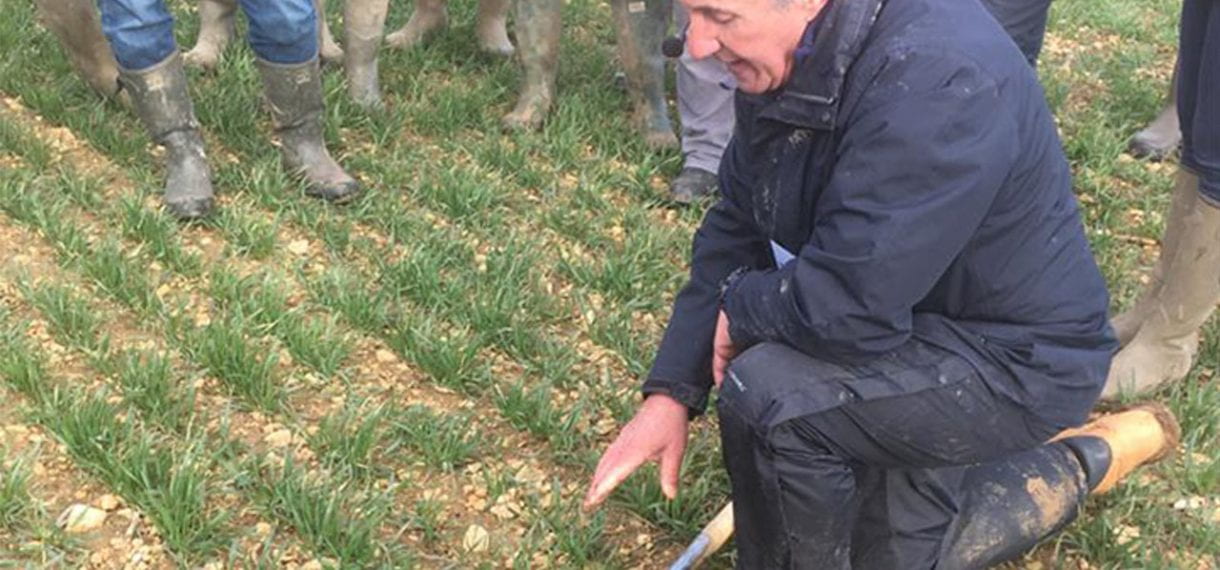

Striving for excellence in keeping your drinking water safe and clean
In the Anglian region, 50% of drinking water is sourced from rivers and reservoirs, and 50% from underground sources.
From these resources, every day, Anglian Water supplies over ONE BILLION LITRES of SAFE DRINKING WATER to our households… but it has a quite a journey before it arrives at our taps. The water taken from the rivers, reservoirs and underground sources has to be filtered, cleaned, and disinfected to remove dirt, debris, harmful microorganisms, pesticides, and nitrates.
Pesticides and fertilizers such as nitrates are used by farmers to grow our safe and affordable food. On occasion, despite farmers’ best efforts, these make their way to water resources. Most of the time, these substances are easily removed or diluted by Anglian Water to drinking water standards which are set by EU regulations. A few pesticides are extremely difficult and expensive to treat at water treatment plants.
Anglian Water has been resourceful, finding alternative ways to ensure clean and safe drinking water, to include a dedicated team of agricultural catchment advisors. Anglian Water agricultural catchment advisers work closely with farmers to encourage and support best management in using pesticides and fertilizers.
Senior lecturer Isobel Wright, and researcher Jenny Rowbottom, both from Lincoln Institute for Agri-Food Technology (LIAT), University of Lincoln Riseholme Campus, have been working with Anglian Water and ADAS, performing interviews with over 70 farmers across three catchments, so as to learn more about farmers’ approaches to managing pesticides and nitrates.
LIAT is also designing new and innovative ways to work with farmers in the Anglian region. In the Cringle Brook – a small river catchment just south of Grantham, Lincolnshire, working with Anglian Water and ADAS, LIAT has staged two successful Knowledge and Innovation Days (KIDs). The KIDs ran in 2018 and 2020 and were funded by RSA and the Environment Agency, respectively. The theme and content of the KIDs has been entirely driven by discussions and feedback from farmers, to include farmer wellbeing, soil health, farm systems to alleviate blackgrass, herbicide resistance and looking at alternative tramline/drilling methods that help keep farmers’ inputs on the field.
These events have generated further positive spin offs…collaboration between Anglian Water and Steven Moss, a blackgrass consultant, to develop on farm trials, and the startup of an Innovative Farmers’ Lab with the Soil Association, to be run by Anglian Water’s catchment adviser – Becky Carter and supported by LIAT researchers. More recently, the Environment Agency has funded a further project in the Cringle Brook, piloting passive monitoring of river pollutants to enable more targeted engagement of the catchment users to address drinking water quality. LIAT is leading this project with Anglian Water, working with other organizations and universities to enable a good outcome for this pilot project.
This case study is part of a much larger project funded by the EU called ‘Farm systems: management and governance for producing good water quality for drinking water supplies FAIRWAY’. Isobel and Jenny are working with partners in thirteen case studies across eleven European countries, tackling a range of subjects including more best management practices to minimize agricultural diffuse pollution of nitrates and pesticides into drinking water resources, decision support tools for managing pesticides and nutrient management on farms, and water policy and governance to support good drinking water quality.
The FAIRWAY project ends in November 2021. The hard work is coming together, resulting in successful engagement and events focusing on the farmers needs in the Cringle Brook, increased understanding of farmer’s approaches to best management of nitrates and pesticides on the farm, a sharing amongst the FAIRWAY partners of on-farm decision support tools, and understanding of the best methods to minimize agricultural diffuse pollution. Jenny and Isobel have also had a significant role in the delivery of a governance task which supported subsequent work of our EU partners, contributing to the delivery of three academic papers on effective governance, the cascade of EU policy to farm level and catch crops. In addition, farmer engagement activities and spin offs in the Cringle Brook will be the basis of a further academic paper.
The FAIRWAY project represents research in the essence – academic outcomes and impactfullness at an industry level… a win win situation.
JE Rowbottom and I Wright. August 2020 e:iwright@lincoln.ac.uk
‘The FAIRWAY project has received funding from the European Union’s Horizon 2020 research and innovation programme under grant agreement No 727984’
